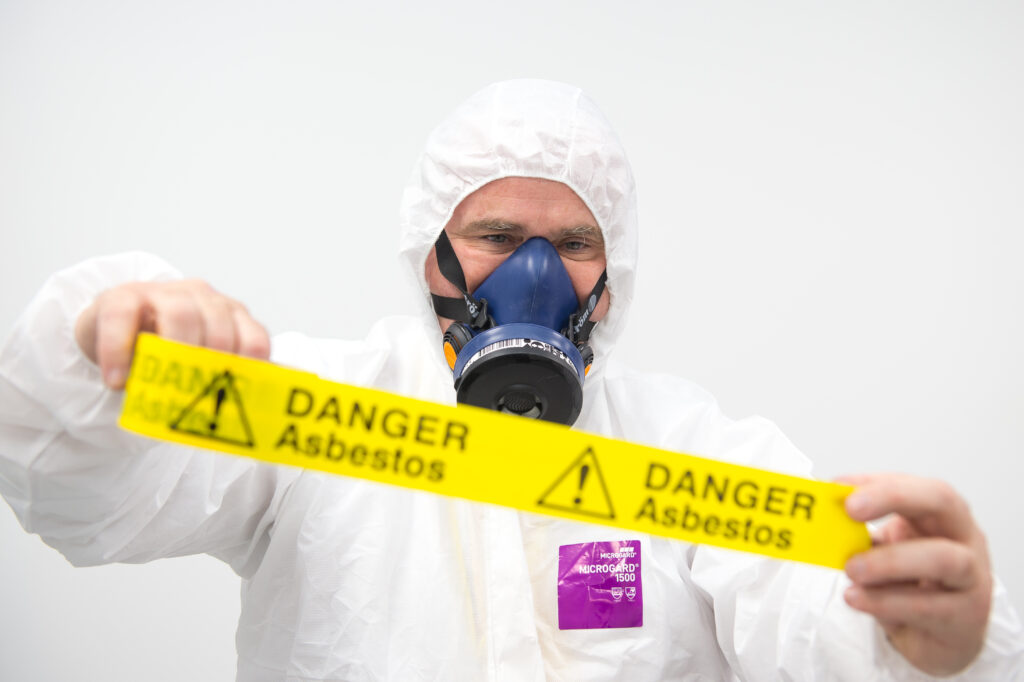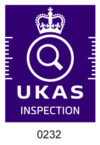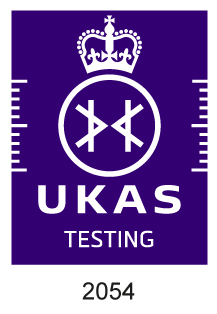Menu
close
**LATEST** New quantitative face fit services for RPE
Book in todayWith the launch of HSE’s campaign ‘Asbestos – Your Duty’ for duty holders in January 2024, it’s a pertinent reminder that awareness of workplace health and safety risks is one of the most valuable tools that duty holders and construction leaders have to make informed decisions that protect people efficiently, cost-effectively, and in a compliant manner.
With this in mind, we’re taking this chance to shine a light on the key health and safety events in asbestos, Legionella and occupational hygiene in 2023, and explain what we collectively need to learn from them.
If you work with asbestos, Legionella or on worksites where people may be exposed to construction dusts, you know that ensuring the health and safety of those in your care is your absolute priority.
Only have a minute? See our video summary here.
In January, two trade unions released landmark reports, highlighting the extent to which asbestos remained a risk in the NHS:
This situation pushed the TUC in particular to renew calls for a National Asbestos Register, as well as a 40-year deadline to remove asbestos from all non-domestic buildings.
Why does it matter?
While the statistics are new, the problem isn’t. The BBC called this situation a ‘ticking time bomb’ in 2017. The debate about whether to manage asbestos or remove it at a national level is ongoing, but for duty holders and construction leaders, as long as asbestos remains in their workplaces, or a part of their refurbishment or demolition projects, they need to ensure they act to remove it or keep it safe and monitor its condition.
This involves providing support and training to those who are making day-to-day decisions about the operation and maintenance of buildings.
In the first half of the year, the HSE launched two campaigns focused on making young tradespeople aware of the risks of asbestos (‘Asbestos and You’) and construction dusts (‘Dust Kills’).
In particular, ‘Dust Kills’ supported over 1,000 inspections of workplaces for compliance, and reported on its findings here – highlighting both good practices and cases where no controls had been put in place.
Why does it matter?
Many young constructors entering the workforce were born after asbestos was banned, and simply do not know the risks that it can present unless they have the correct support and training. Likewise, they must also be appropriately protected from construction dusts – which goes well beyond just wearing appropriate Respiratory Protective Equipment (RPE).
Asbestos fibres and many construction dusts are virtually invisible to the naked eye, and they have a long latency period before exposure results in respiratory health problems.
This is why construction leaders must take action now to help young people minimise health risks – and awareness training is the vital first principle.
The Sunday Times’ ‘Act Now on Asbestos’ campaign launched, publicising the nature of the asbestos risk affecting over 21,500+ schools in the UK, as well as sharing the personal stories of those afflicted by decades of exposure – a legacy that continues to this day.
The outcome of this campaign was far-reaching and nearly immediate, compelling the HSE to launch a programme of inspections into school asbestos management procedures.
Why does it matter?
Much like the reports focusing on asbestos in hospitals, the ‘Act Now on Asbestos’ campaign targeting schools shows the extent to which the nature of the asbestos risk is changing.
Though tradespeople remain at risk, ‘occupational exposure’ caused by working in an environment with asbestos is an increasingly pressing problem. We explained how in this blog.
This changing ‘face’ of the problem presents a challenge for duty holders, who can’t just look at asbestos safety from project to project, but as a challenge of day-to-day management.
In August, Legionella bacteria hit the headlines in a high-profile case, wherein 39 asylum seekers on the Bibby Stockholm barge had to be temporarily evacuated due to the presence of Legionella.
Our Technical Director, Bob Harris, was invited by BBC News to explain the Legionella management issues that could have played a part.
Why does it matter?
Behind the high-profile nature of this case, it served as a reminder that, even without the risk of a major public relations incident, duty holders must remember their fundamental management steps:
1) Assess the risk of Legionella in your system.
2) Implement the recommended control measures from your risk assessment and carry out remedial works to make your systems safe.
3) Monitor the risk with ongoing inspection and testing.
You can download a full Legionella risk management flowchart here.
In the last months of 2023, HSE released its annual report into occupational health – revealing that over 12,000 people lose their lives each year due to historical exposure to respiratory hazards, including over 5,000 deaths related to asbestos exposure.
However, there is important additional context that suggests the HSE’s numbers (which we summarise here) aren’t fully reflective of the changing nature of the problem – or its true scale.
The year concluded with Mesothelioma UK, presenting groundbreaking findings to Parliament about one of these issues – the risks asbestos still poses in schools and hospitals.
Why does it matter?
With over-75s and certain groups of teaching and educational staff not being included in the HSE statistics, there is likely to be a greater number of deaths attributable to asbestos than suggested.
Moreover, with 19,000 people a year developing respiratory illnesses, duty holders need to immediately be aware of just how potent asbestos and construction dust exposure can be – regardless of how long it takes for symptoms to manifest – and act to protect those in their care.
It’s very difficult to predict exactly what will happen: there’s no guarantee that a register or a national asbestos removal plan will happen, despite these being up for debate in the House of Commons, for example.
However, this shouldn’t be disheartening for duty holders and construction leaders, simply because the measures to protect those in their care are effective, and within their control:
Most importantly, however, seeking expert advice is vital – whether you are unsure of where to start, or whether you need to delegate these management priorities to a trusted expert that will keep you compliant and your projects on track.
AEC have over 25 years’ experience keeping workplaces safe, working efficiently, pragmatically and cost-effectively.
If you work with (or have a duty to manage) asbestos or Legionella, or need to protect site workers from construction dusts, simply call us at 020 3384 6175 for tailored advice on your next project.

Protecting ‘at-risk’ patients and staff, managing projects cost-effectively, and juggling these with other vital health, safety and energy-efficiency demands – whilst the regulations governing asbestos safety aren’t unique to the NHS, the scope and scale of challenges you face are. If you are ready to seek that support from a pragmatic, competent partner, get in touch with AEC .

Darren Evans is AEC’s Technical Director. He is also a member of the Asbestos Testing and Consultancy Association (ATaC) Management Committee, and British Occupational Hygiene Society (BOHS) Faculty of Asbestos Assessment and Management Committee.

We hope that this guide has resolved your doubts about asbestos awareness training. If you need to organise training (or a refresher), you can see our full course catalogue. If you have any questions about the right training for you, you can email us at [email protected] or call (0)161 872 7111.

Looking after every asbestos-related compliance responsibility is a challenge that can be difficult to carry out alone. AEC can help you with every stage of your project – from expert project management support to carrying out legally-required surveys that can give you the green light to start that work.
Which challenges are you facing on your site? Contact Us for Support.

AEC has over 25 years’ experience supporting facilities managers to make asbestos, fire safety and Legionella compliances simple, streamlined and stress-free. If you would like support with any upcoming project, don’t hesitate to get in touch with our team at [email protected], or by calling 0203 384 6175.

